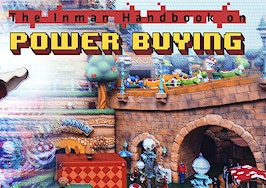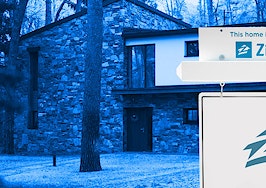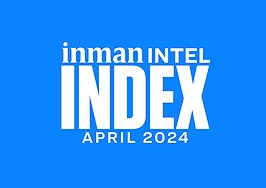Through December Inman will be digging into the real estate industry’s most prominent brokerages, iBuyers and paradigm-shifters to suss out the biggest challenges each face in 2022. Check back regularly as we publish new reports on Keller Williams, Compass, Zillow and others in the days and weeks ahead.
Opendoor has long been the king of the iBuyer hill, but 12 months ago no one could have imagined that 2021 would be the year the company Ned Stark-ed its biggest rival, Zillow.
Of course, Opendoor did not itself swing the proverbial sword that led to the downfall of Zillow’s iBuying wing — Zillow seems to have done that itself. But in the game of iBuyer thrones, the effect was largely the same: This year left Opendoor as the undisputed champion in one of real estate’s buzziest sectors.
Beyond vanquishing rivals, 2021 was big for Opendoor in other ways. It was, for instance, the iBuyer’s first full year as a publicly traded firm. And it expanded, made acquisitions and, despite an ongoing pandemic, saw revenues soar.
All of this means that these are heady times for iBuying generally, and all eyes are fixed on Opendoor specifically.
To understand what lies ahead for the company, Inman reached out both to Opendoor itself, as well as a group of outside observers. The takeaway is that Opendoor is in a strong position as it heads into the new year, with vast experience and demand for its services.
However, at the same time, the company faces fierce competition on multiple fronts and is still working toward the major and essential milestone of becoming profitable.
Here’s what you need to know about the challenges and opportunities in store for Opendoor:
The journey to profitability
Probably the most important issue for Opendoor shareholders, and for the company’s long-term prospects, is how it will become profitable.
Opendoor has made progress in that direction, for example reporting last month that losses fell from $144 million in the second quarter of the year to $57 million in the third. That third quarter loss was also down from $80 million one year prior.
Those are still big losses though, and eventually Opendoor will have to post a profit.

Andrew Low Ah Kee
Asked about profitability, Opendoor President Andrew Low Ah Kee argued that the company is on the right track, saying “we have consistently demonstrated strong unit economics with 19 consecutive quarters of positive contribution margin.”
“In addition, we generated positive adjusted EBITDA and adjusted net income last quarter,” Low Ah Kee told Inman. “At the scale we’re operating at, we have demonstrated that we can operate profitability.”
Real estate analyst Mike DelPrete told Inman Opendoor’s ultimate path to profitability is “uncertain,” but depends on increasing scale. And, he added, “There’s no easy way to do it.”
“If they can keep their costs low, and they can grow bigger and bigger and bigger, which is what they did in Q3, maybe they can get there,” DelPrete explained, adding that “to get the scale, Opendoor needs to be buying.”
Opendoor has indeed shown an ability to scale up. In the third quarter of 2021 the company bought a staggering 15,181 homes, which is a jump of 79 percent compared to the previous quarter. And it sold 5,988, up 72 percent quarter-over-quarter.

Mike DelPrete
But DelPrete noted that “with great risk, comes great reward.”
“You don’t know what you’re going to wake up to tomorrow,” DelPrete said. “Is it a new COVID variant? Is it rising interest rates? Is it something else that is outside of your control that’s going to impact the housing market in a big way? If there’s a dip in prices just a little bit, or if Opendoor is no longer able to sell those houses for more than they bought them for but it’s a little bit less, you saw what happened to Zillow. So it’s on a knife’s edge, it’s incredibly risky. So that’s this challenge, as Opendoor flexes its muscles and gets bigger and bigger and bigger with more volumes, it’s also exponentially increasing its risk.”
Expansion and evolution
There are a few different ways Opendoor can, in DelPrete’s words, get bigger and bigger and bigger. One of those ways is via geographic expansion.
In 2021, Opendoor expanded into 23 new markets, and Low Ah Kee said that in the near term future the company will “continue to grow in our existing markets, add new markets and extend the breadth of our offerings” in the coming year.

Stefan Peterson
Stefan Peterson, co-founder and chief data officer of iBuyer marketplace Zavvie told Inman geographic expansion makes sense for Opendoor and that his company is seeing growing demand for the iBuyer product in a variety of locations. This is good news for Opendoor, and sets up 2022 as a period of opportunity for the company.
But Opendoor will also need to evolve in other ways as well.
Peterson, for instance, envisions Opendoor expanding their “buy box,” or the parameters within which they’re willing to purchase houses. And he specifically pointed to higher end, pricier homes as an area for which there is a significant amount of growth potential for companies like Opendoor.
“Overall as iBuyers gain more experience they can buy more expensive houses,” Peterson said. “I think that’s a big opportunity for them.”
Indeed, this process has already been happening. Though iBuying began with companies tackling low cost homes in cookie cutter suburbs, Opendoor revealed earlier this year it was raising its price ceiling. It also announced at the same time that it would buy homes in both gated and age-restricted communities.
Moreover, some of the markets Opendoor has entered — San Diego, Los Angeles, Washington, D.C., etc. — have considerably more diverse housing stock than, say, the suburbs of Phoenix.
The challenge, or opportunity, then is for Opendoor to continue this kind of business model expansion while staying (or becoming more) fast and lean.
In other words, geographic expansion and buy box expansion go hand in hand; in order to conquer new markets, an iBuyer has to develop the ability to price and purchase unique housing types. That’s not an easy thing to do, though Peterson was optimistic about Opendoor’s prospects.
“This is not an easy business at all,” he said. “But they know what they’re doing. These guys have got the infrastructure to do it.”
The future role of other services
Another piece of the evolutionary puzzle is what other services Opendoor might lean into. The iBuyer recently purchased a mortgage company, for example, and launched an end-to-end platform for consumers. Clearly, Opendoor has demonstrated a desire to be the one-stop-shop for anyone looking to buy or sell a house, and Low Ah Kee indicated that remains a goal.
“So far we’ve powered over 100,000 customer transactions,” he said. “And we’re just getting started. We have found that when you delight customers, they will trust you with many services that surround the transaction. We demonstrated this when we acquired a leading title and escrow provider and integrated them into the selling experience.”
But not everyone is so sure such services have a major role to play in Opendoor’s path toward profitability.
“I think it’s pretty clear that title insurance, it’s a great adjacency, it’s a great attachment, but it’s just so small compared to the overall business,” DelPrete said. “If you’re making $1 billion in revenue and you’re making a couple million bucks from title, it’s just not enough to bridge the gap from unprofitability to profitability.”
DelPrete also described mortgage as “really, really hard” and noted that Opendoor’s “mortgage business is still very, very nascent.”
“That’s not the kind of thing where you just decide, ‘Oh OK 2022, let’s spin that up and we’ll get profitability,’” he added.
That doesn’t mean Opendoor’s various ancillary services can’t grow, or that they won’t factor prominently in Opendoor’s future. Surely they will.
But it also means there probably isn’t a silver bullet for achieving profitability; the company’s success is still going to depend on how well it executes on its bread-and-butter iBuying.
Then there’s the power buyer question. The term “power buyers” refers to companies that work with buyers, offering things like cash backing and bridge loans that are meant to make the process faster and easier. Peterson said there appears to be significant demand for the power buyers’ products, to the point that the concept may have more potential than iBuying itself.
“I think there is actually a lot more demand for the power buyer product and a lot more headroom on growth,” he said. “IBuying is a little like finding a needling a haystack. Whereas power buying is like shooting fish in a barrel.”
Opendoor has already leaned into this space, for example by providing cash backing to buyers. And the growth of power buying generally means the segment could represent a major opportunity for the company going forward; few firms are as big, experienced and well-funded.

Bernice Ross
On the other hand, Opendoor is also competing on a more crowded playing field and has less of a head start than it did in iBuying. Some see that as a potential challenge for the company.
“Their biggest competition will [come] from ‘power buyers,'” Bernice Ross, a real estate coach and Inman contributor, said. “Because this solves the contingent sale issue, which has always been a huge challenge in the industry, I believe that model will grow exponentially.”
Which is to say, Opendoor is already the Opendoor of iBuying. It’s the top dog. The question now is if it can become the Opendoor of power buying.
Standing out
Speaking of crowded spaces, one of the more existential challenges Opendoor faces going forward is simply standing out against more competitors. DelPrete compared the iBuying landscape to a beach, and pointed out that Opendoor was the first one there.
“It’s nice,” he continued. “You’ve got the place to yourself, you can spread out, you can put your towel anywhere you want, you can go in the water, there’s no rush. Now in 2021, it’s just a super crowded beach.”
DelPrete noted that there are other competing iBuyers, as well as iBuying products from legacy brands like Keller Williams and Realogy. And the power buying space is crowded too.
“Everybody’s out there doing all this stuff. It’s not iBuying but it’s kind of like it, and it’s a new way to buy or sell,” he concluded. “I think that’s probably one of the biggest challenges that Opendoor and Offerpad face next year: this clarity of purpose. Being able to communicate clearly to customers in a crowded marketplace where they’re not in control of the message, they’re not in control of the marketplace and what’s going on.”
To be sure, Opendoor has advantages on this front. Other iBuyers such as Offerpad and Redfin are significantly smaller, and Opendoor has a major head start, among other things, on the legacy brands. But it remains to be seen if, in the end, just one company will wear the iBuying crown.
“They’re at a very crowded beach, there’s a lot of activity,” DelPrete said. “I think that’s a big deal. And it’s just going to get more and more and more crowded and confusing in the market when you’re thinking about a consumer.”
The Zillow effect
Finally, there’s the Zillow thing.
The biggest story of 2021 in iBuying was Zillow bowing out of the practice in November. At the time, Opendoor and other iBuyers stressed that they were still thriving and that Zillow’s failure wasn’t a reflection on the concept of iBuying itself. And the news certainly represents an opportunity for Opendoor in terms of name recognition, market share and inventory.
But the collapse of Zillow Offers may also cast a bit of a shadow over the iBuying concept. Jena Turner, a broker who runs Found Realty in the Houston area, noted that Opendoor operates in her market and that there appears to be a growing consumer awareness of the company. That said, Zillow was far better known and the end of Zillow Offers may taint the iBuying concept in the minds of some consumers.

Jena Turner
“Zillow brought such a big name to iBuying,” Turner said. “The fact that Zillow got out will probably cost some seller and buyer confidence.”
Other the other hand not everyone thinks Opendoor will suffer from Zillow’s failure, with Peterson expressing optimism that Opendoor will emerge unscathed by its rival’s trouble.
“Consumers want what they’re providing,” he concluded.
Time will tell, but there’s little question that Zillow’s stumble is something of an 800-pound gorilla in any discussion about iBuying right now.
There have always been questions about the viability of iBuying, including occasionally from the iBuyers themselves. Redfin’s Glenn Kelman, for one, has repeatedly expressed skepticism about the growth potential of the practice. He has also indicated iBuying can be more useful as a way to begin a conversation with a consumer who will later use other brokerage services, rather than as a standalone practice.
Redfin is not Opendoor, but the point here is simply that there’s an open question right now about the true role of iBuying in the real estate industry. The end of Zillow Offers became a major inflection point in the debate over that question.
For its part, Opendoor itself seems unfazed. Asked about Zillow Offers, Low Ah Kee said his company has “always defined our competition as the 99 percent of transactions that still happen offline in the traditional process.”
“We are in the midst of a generational shift towards a fully digital experience, with a large, unmet need for a seamless experience in real estate,” he concluded. “We have demonstrated strong growth and unit economics, and we are energized to help homeowners nationwide move with simplicity, certainty and speed.”













